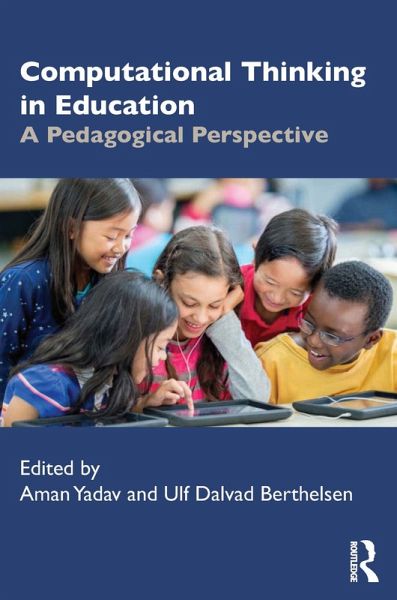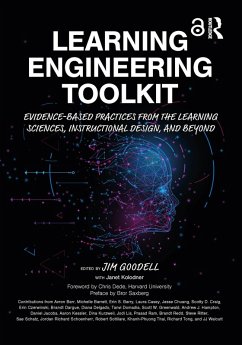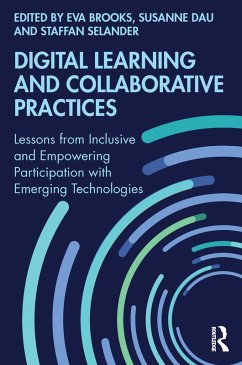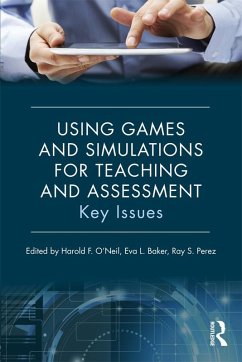
Computational Thinking in Education (eBook, PDF)
A Pedagogical Perspective
Redaktion: Yadav, Aman; Berthelsen, Ulf
Versandkostenfrei!
Sofort per Download lieferbar
39,95 €
inkl. MwSt.
Weitere Ausgaben:

PAYBACK Punkte
20 °P sammeln!
Computational Thinking in Education explores the relevance of computational thinking in primary and secondary education.As today's school-aged students prepare to live and work in a thoroughly digitized world, computer science is providing a wealth of new learning concepts and opportunities across domains. This book offers a comprehensive overview of computational thinking, its history, implications for equity and inclusion, analyses of competencies in practice, and integration into learning, instruction, and assessment through scaffolded teacher education.Computer science education faculty an...
Computational Thinking in Education explores the relevance of computational thinking in primary and secondary education.
As today's school-aged students prepare to live and work in a thoroughly digitized world, computer science is providing a wealth of new learning concepts and opportunities across domains. This book offers a comprehensive overview of computational thinking, its history, implications for equity and inclusion, analyses of competencies in practice, and integration into learning, instruction, and assessment through scaffolded teacher education.
Computer science education faculty and pre- and in-service educators will find a fresh pedagogical approach to computational thinking in primary and secondary classrooms.
As today's school-aged students prepare to live and work in a thoroughly digitized world, computer science is providing a wealth of new learning concepts and opportunities across domains. This book offers a comprehensive overview of computational thinking, its history, implications for equity and inclusion, analyses of competencies in practice, and integration into learning, instruction, and assessment through scaffolded teacher education.
Computer science education faculty and pre- and in-service educators will find a fresh pedagogical approach to computational thinking in primary and secondary classrooms.
Dieser Download kann aus rechtlichen Gründen nur mit Rechnungsadresse in A, B, BG, CY, CZ, D, DK, EW, E, FIN, F, GR, HR, H, IRL, I, LT, L, LR, M, NL, PL, P, R, S, SLO, SK ausgeliefert werden.













